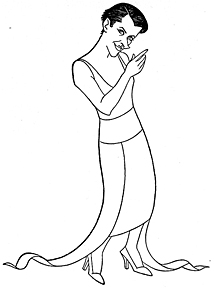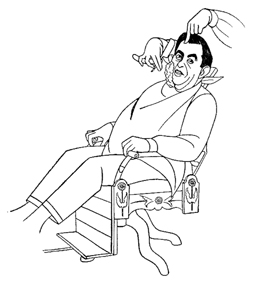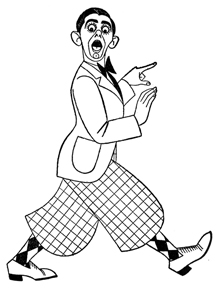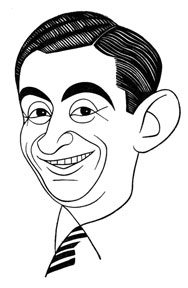In this chapter from his 1932 book, Times Square Tintypes, Broadway columnist Sidney Skolsky profiles actress and comedic performer Beatrice Lillie.
PuLEEZE!!!!
BEATRICE LILLIE was really born in Toronto, Canada. She went to England, alone, at the age of fifteen.
Her theatrical career started in Charlot’s Revue of 1915. Here she made her first hit singing Irving Berlin‘s “I Want to Go Back to Michigan.”
Has an inferiority complex whenever she talks about business.
Her husband is Lord Peel. That makes her Lady Peel, in parentheses, to the rotogravure sections. Her supreme treasure is her son, Robert, who is here with her.
Is exactly the same offstage as she is on. Even says “Thank you” and “Puleeze” as she does for a laugh in the theater.
Sleeps perched up on three big pillows. Always has a sandwich placed on the night table and sleeps with socks on to keep her feet warm.
There are two things she really hates. One is to have her picture taken. The other is writing her signature.
She passed the blindfold test, endorsing a certain brand of cigarettes. She smokes an English cigarette called “Players.” She endorsed Lux thinking it was candy.
She either likes a person at first sight or not at all.
As far as musical talent goes she can tickle a bit on the guitar.
The only legitimate play she ever appeared in was Up in Mabel’s Room. It was a big hit here. It lasted six weeks in London. The critics said: “Beatrice Lillie played Beatrice Lillie very well.”
A snowstorm fascinates her. During the snowstorms, while she was in this city, she went sleigh riding in Central Park.
Calls people “Ducky.” If she doesn’t call them “Ducky,” she calls them “Chicken.” Whenever something pleases her she refers to it as “A pretty kettle of fish.”
Her son scolds her because she wears funny costumes on the stage. He believes he should always look pretty.
Among the things that make her shudder are people who chump hard candy, people who tell you they have a cold and then cough in your face to prove it, people who crack their knuckles and people who are always blowing bubbles with chewing gum.
She likes the saxophone because Lord Peel plays it.
She owns a dress suit. And wears it as well as she does a Paris smock. This Year of Grace was the first show in her theatrical career in which she didn’t wear it.
Every week she receives letters from people who want to sell her an old gun, an old piece of china or an old print that once belonged to the early Peels.
Almost everyone has his own nickname for her. Some of the most popular are: “Tiny,” “Smally,” “Beena,” “Mina,” “Hoyland,” “Peanut,” ‘Dumbell,” “Crazy,” “Oopie” and “Lady Peel.”
She would rather visit a doctor than eat an apple. She only took a bite of the apple she is supposed to eat while singing “World Weary.” This bite almost choked her.
She can name the horse the Prince of Wales didn’t fall off.
Her favorite Americans are Robert Benchley, Donald Ogden Stewart, George S. Kaufman, Harold Ross, Marc Connolly and Alexander Woollcott. The Algonquin, she believes, is the capital of the United States.
Claims that no matter where she lives in this town of ours they are always building a house next to her bedroom. For this reason she sleeps with cotton in her ears.
Every evening she orders the same dinner. It consists of roast beef plain, plain boiled potatoes, plain white bread, Worcestershire sauce and plain spinach. She makes a special request that it be served by a plain waiter.
Her secret desire is to be able to speak with a Jewish accent.





